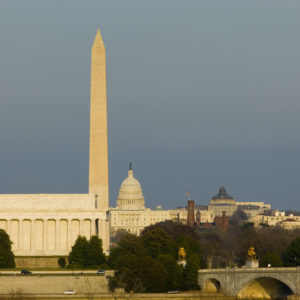President Donald Trump had another critical nominee confirmed Wednesday, tilting the federal agency tasked with resolving labor dispute cases further in his favor.
The National Labor Relations Board (NLRB) is an agency responsible for enforcing federal labor law and resolving unfair labor practice complaints. Trump has already managed to fill three key positions on the five-member board since entering office. Peter Robb being confirmed by the Senate to serve as the general counsel of the agency further solidifies the new board.
Robb was previously working as the director of labor and employment at the law firm Downs Rachlin and Marin. His career practicing law stretches back to the 1980s. During those years, he also had firsthand experience working for the NLRB as chief counsel to former member Robert Hunter, a Reagan appointee.
Trump was tasked with filling two vacant seats and selecting a new board chairman when he entered office earlier this year. Philip Miscimarra, who was already a member and thus didn’t need Senate approval, was picked to serve as the chairman of the board. William Emanuel and Marvin Kaplan were nominated by the president to be members and later approved by the Senate. The NLRB general counsel plays a critical role in the agency but is independent from the five-member board.
Former President Barack Obama oversaw a board which critics contested was overly activist. Republicans and the business community have fought to rollback policy changes the previous board made, which they saw as unfairly benefiting unions. The NLRB in those years was essentially able to make new policies simply by altering how it ruled on labor dispute cases. The new members could potentially reverse those changes if provided relevant cases to rule on.
The NLRB was still facing one setback before it could hope to readdress those policy changes. The general counsel investigates and decides which cases the board will review. Richard Griffin, an Obama-era holdover, was still serving as the general counsel and was unlikely to bring up cases that would allow the new board to reverse course. Griffin was eventually replaced by an acting general counsel when his term expired Nov. 1.
The Obama administration argued the changes in recent years were designed to better protect workers. Those changes were praised by progressives and unions who see organized labor as being critical to upholding worker rights. The previous NLRB focused on union elections, how companies can contract together, and how contract workers are classified.
The NLRB was formed in 1935 during a series of economic-related reforms known as the New Deal. The reforms included worker rights laws and support for the economically disadvantaged. Former President Franklin D. Roosevelt helped implement the changes in response to the Great Depression.
The NLRB is supposed to act as an independent judicial body for labor dispute cases. Some critics, particularly conservatives and business groups, have argued the board is politically driven, with the issue becoming radically more pronounced during the Obama years. They have argued the board overstepped its authority by unilaterally changing labor law through case precedent.

